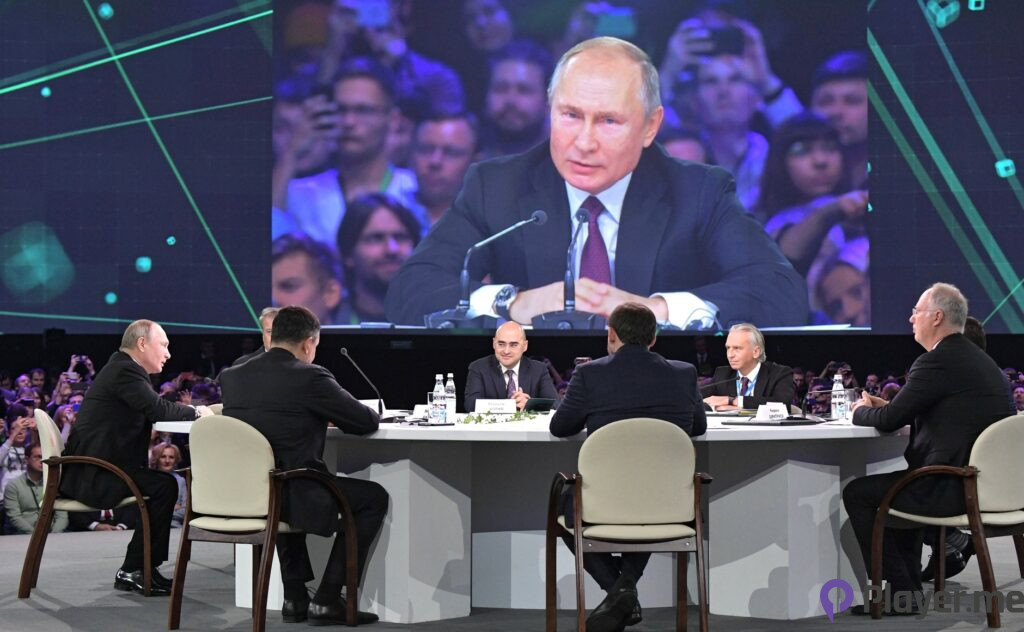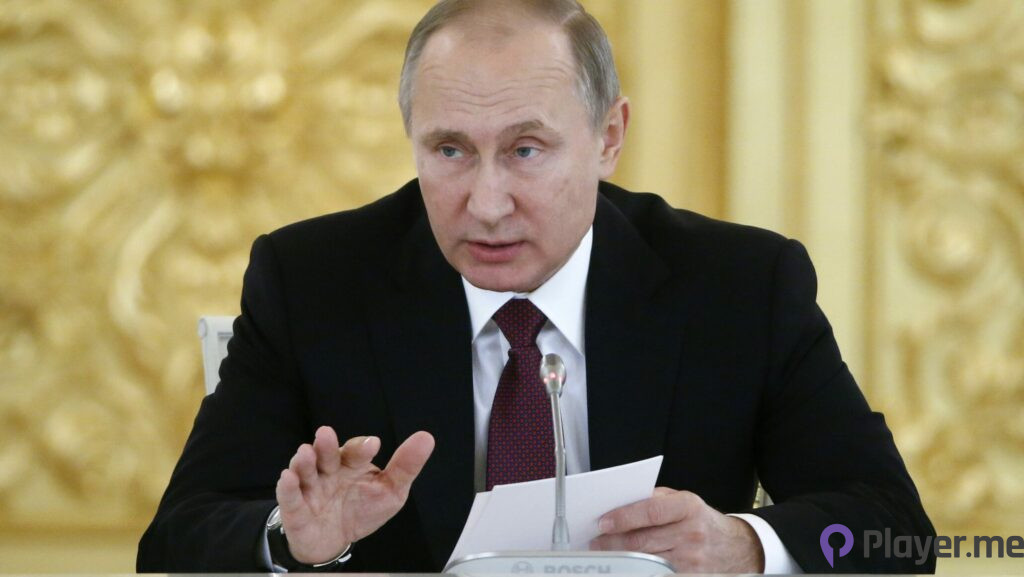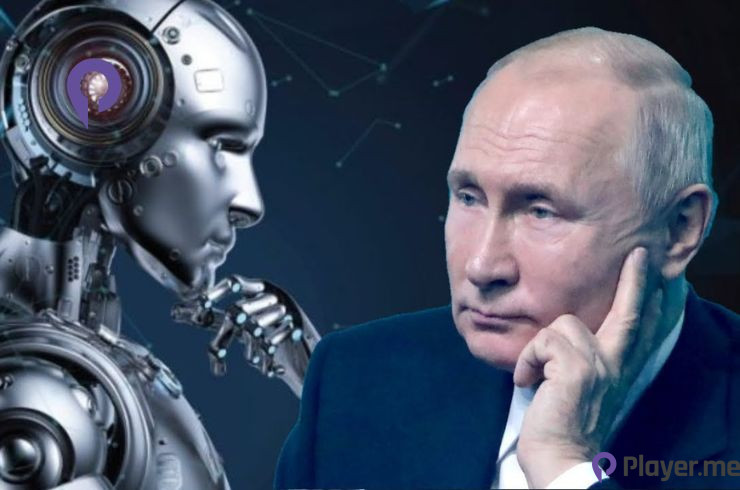Russian President Vladimir Putin has unveiled plans to endorse a national strategy for the development of artificial intelligence (AI), emphasizing the need to prevent a Western monopoly in this critical field. Speaking at an AI conference in Moscow, Putin highlighted the importance of utilizing Russian solutions to create reliable, transparent, and safe AI systems.
He expressed concerns about the monopolistic dominance of foreign technology in Russia, deeming it unacceptable and dangerous. The announcement underscores Russia’s commitment to shaping its own path in AI development, resisting what Putin perceives as the imposition of Western values on Russian culture through AI tools.
Putin’s announcement reflects a broader geopolitical landscape where countries, including Russia, are asserting their independence in the development of emerging technologies. The emphasis on creating AI systems aligned with national values and resisting foreign monopolies aligns with a growing trend of technological sovereignty.
Also Read: Assessing the Potential Risk of OpenAI’s Project Q* on Humanity in November 2023
3 Key Takeaways
1. The Divergence in Ethical Considerations Become a Focal Point
As nations vie for leadership in AI and emerging technologies, the divergence in ethical considerations and cultural values is becoming a focal point. The Russian approach underscores the importance of shaping AI development to suit its unique cultural and ethical context, challenging the perceived dominance of Western technology. Vladimir Putin’s announcement of a national strategy for AI development signals Russia’s intent to carve its own path in the rapidly advancing field of artificial intelligence.
By prioritizing the creation of reliable, transparent, and culturally aligned AI systems, Russia aims to ensure its technological sovereignty and resist the monopolistic influence of foreign technology, particularly from the West. This move reflects a broader global trend where nations seek to assert control over the development and deployment of cutting-edge technologies with significant implications for society, ethics, and national security.
Russian President Vladimir Putin has expressed apprehension about Western-developed artificial intelligence (AI), emphasizing the need for a national strategy to ensure AI aligns with Russian culture and values. Putin raised concerns about AI systems trained on Western data, suggesting they may reflect norms and ethics at odds with Russian values. This stance is part of Putin’s broader commitment to safeguarding Russian culture, particularly in response to perceived Western influence.
2. Potential Risks of AI Are Rife
The president warned of potential risks, stating that algorithms developed by Western platforms could lead to a digital “Cancellation” of Russia and its cultural identity. This underscores Putin’s focus on mitigating unintended consequences and ensuring that AI respects the diverse cultural landscapes it impacts, reflecting a global discussion on the cultural implications of emerging technologies.
Vladimir Putin has highlighted concerns about modern AI systems trained on Western data, suggesting that they are tailored for the Western market and may embody ethical and behavioral norms that conflict with Russia’s values. During his extensive tenure, Putin has implemented strict measures against opposition and civil society groups while emphasizing “Traditional values” to counter perceived Western influence, a stance that intensified following military actions in Ukraine in February 2022.
Vladimir Putin has cautioned that algorithms developed by Western platforms might contribute to a digital “Cancellation” of Russia and its cultural identity. He expressed the worry that an AI created in accordance with Western standards could potentially exhibit xenophobic tendencies, underlining the need for Russia to develop its AI systems rooted in its own values and principles. This stance reflects broader geopolitical and cultural considerations in the evolving landscape of artificial intelligence.
3. The Advancement of Supercomputer and Other Tech Remains a Priority

Russian President Vladimir Putin has committed to allocating additional resources for the advancement of supercomputers and other technologies to bolster national research in AI. The focus is on expanding both fundamental and applied research in generative AI and large language models.
“In the era of technological revolution, it is the cultural and spiritual heritage that is the key factor in preserving national identity, and therefore the diversity of our world, and the stability of international relations,” Putin emphasized. He highlighted the significance of traditional values, the linguistic richness of Russian and other languages spoken in the country, and their role in shaping AI systems that are reliable, transparent, and secure.
This approach underscores Vladimir Putin’s vision of integrating technological progress with the preservation of cultural identity and values, aiming for the development of AI that aligns with the principles of transparency and security.
Quick Link: VMware Collaborates with Intel to Unlock Private AI Everywhere
Safeguarding Methods Have to Be Set in Place

Russian President Vladimir Putin has stressed the impracticality of attempting to ban the development of artificial intelligence (AI), emphasizing that such efforts would be futile, and that banning technology would result in it flourishing elsewhere. Instead, he advocates for the establishment of necessary safeguards to address potential risks associated with AI.
“I am convinced that the future does not lie in bans on the development of technology, it is simply impossible,” Vladimir Putin stated. “If we ban something, it will develop elsewhere, and we will only fall behind, that’s all.”
Furthermore, Vladimir Putin expressed his belief that once the global community fully comprehends the risks associated with uncontrolled AI development, there will be a collective effort to devise security guidelines for its responsible use. “When they feel the threat of its uncontrolled spread, uncontrolled activities in this sphere, a desire to reach agreement will come immediately,” he remarked, underscoring the need for collaborative international efforts to address the challenges posed by AI development.
For the latest news on AI, check out https://player.me/category/ai/.
Author Profile
Latest entries
 GAMING2024.06.12Top 4 Female Tekken 8 Fighters to Obliterate Your Opponents in Style!
GAMING2024.06.12Top 4 Female Tekken 8 Fighters to Obliterate Your Opponents in Style! NEWS2024.03.18Elon Musk’s SpaceX Ventures into National Security to Empower Spy Satellite Network for U.S.
NEWS2024.03.18Elon Musk’s SpaceX Ventures into National Security to Empower Spy Satellite Network for U.S. GAMING2024.03.17PS Plus: 7 New Games for March and Beyond
GAMING2024.03.17PS Plus: 7 New Games for March and Beyond GAMING2024.03.17Last Epoch Necromancer Builds: All You Need To Know About It
GAMING2024.03.17Last Epoch Necromancer Builds: All You Need To Know About It





